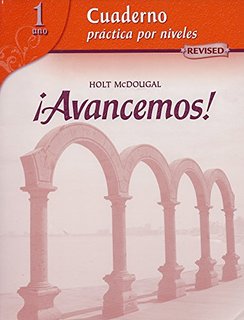
All Solutions
Page 326: Gramatica C
We will translate the sentences because cotext is crucial for these types of exercises.
*(… A **ellos** les gusta el arte.)*
We used the pronoun *”they” (**ellos**)* because it refers to friends.
*(…y vienen con **ella**.)*
Norma is *”her” (**ella**)*, so that is why we used that pronoun.
*(…Está cerca de **ella**.)*
“The house” comes from the feminine noun *la casa*, so that is why we used the feminine third-person singular form, which is *”it” (**ella**)*.
*(…Está al lado de **ella**.)*
“The school” comes from the feminine noun *la escuels*, so that is why we used the feminine third-person singular form, which is *”it” (**ella**)*.
*(…Ella los compra para **nosotros**.)*
Here, we need a pronoun that covers all people mentioned, so we used the pronoun *”us” (**nosotros**).*
You should use the information given in the parenthesis.
Mis amigos llegaron tarde al museo. Ellos esperaron a **mi.**
*(My friends arrived late at the museum. They waited for me.)*
Silvia, yo compré un boleto para **ti.**
*(Silvia, I bought a ticket for you.)*
Ana también queria ir con **nosotros.**
*(Ana also wanted to go with us.)*
Ana es muy artistica. A **ella** le gusta el arte.
*(Ana is very atristic. She likes art.)*
Todos mis amigos fieron al museo **conmigo.**
*(All my friends went to the museum with me.)*
This exercise tests what you have previously learned — the preterite and the appropriate pronouns.
*(Last week, I invited my friend for a coffee.)*
*(Last week, I iwent to an aquarium near my house.)*
*(Last week, I bought an ice cream for mu little brother)*

